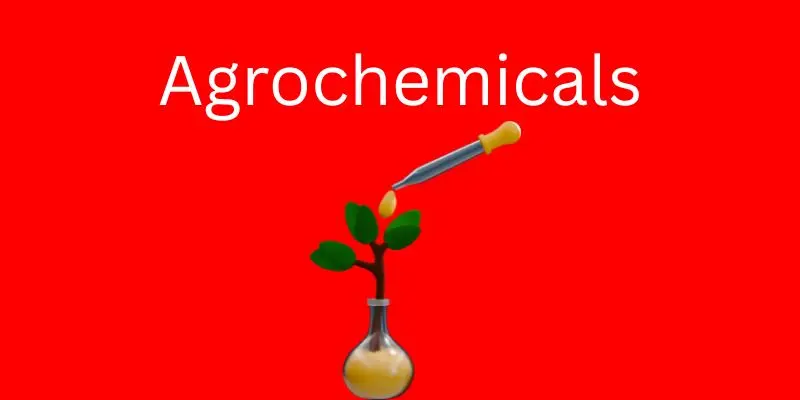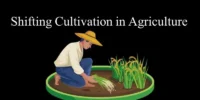The Real Impact of Agrochemicals: Power, Risk, and the Future of Farming
Published: 24 May 2025
I always thought chemicals were just a tool—nothing more, nothing less. You spray, you grow, you harvest. But somewhere along the way, I started wondering: why were my yields flattening out even when I followed every instruction? Why was my skin itching after fieldwork? And what was that bitter smell lingering in the breeze after every application?

This wasn’t how it was supposed to be. I didn’t sign up for invisible side effects or second-guessing every farming decision. Yet here I was—confused, concerned, and looking for clarity. Could agrochemicals really be both a blessing and a silent burden?
The Hidden Trade-Off in Every Spray
You want healthy crops. You want higher yields. So you spray. But behind every bottle of agrochemicals lies a choice—one that affects not just your harvest, but your health, your soil, and the water your children drink. It’s the silent debate happening in every farmer’s field: productivity vs. responsibility.
What Are Agrochemicals, Really?
Agrochemicals are chemical products used in agriculture to enhance crop productivity and protect against pests, weeds, and diseases. But they’re not just about “pesticides.”
Types of Agrochemicals
- Fertilizers – Boost plant nutrition.
- Pesticides – Kill harmful pests.
- Herbicides – Eliminate unwanted weeds.
- Fungicides – Prevent fungal infections.
- Insecticides – Target insect infestations.
- Growth Regulators – Influence plant growth patterns.
These tools are widely used because crop failure is no longer an option in a hungry world.
Agrochemical ≠ Evil. But misuse = disaster.
The Revolution They Started: Agrochemical Benefits in Farming
Agrochemicals have undeniably transformed global agriculture.
- Dramatically increased food production
- Shielded crops from catastrophic pest attacks
- Delivered uniform quality and appearance
- Boosted farmer income through larger harvests
- Extended crop shelf-life for export and storage
“Without agrochemicals, some countries wouldn’t just be poor—they’d be starving.”
But at What Cost? The Dark Side of Agrochemical Use
The same chemicals that protect can also destroy. Overuse or careless use has triggered a host of serious problems:
- Soil fertility degradation
- Contamination of groundwater and rivers
- Development of resistant pest species
- Harm to pollinators like bees and butterflies
- Human health risks: respiratory diseases, cancers, and neurological disorders
“Every year, thousands of farmers unknowingly expose themselves to chemicals banned in other countries.”
Human Stories: The Emotional Toll Behind the Science
Real people, real consequences:
- A farmer developed lung disease after spraying without protection for years.
- A village reported birth defects traced to pesticide-contaminated water.
- A rural community thrived after switching to organic pest control and education.
“These are not just statistics—they are people who believed they were doing the right thing.”
Safe and Sustainable: Best Practices for Responsible Use
You don’t need to abandon agrochemicals—just use them wisely.
- Always wear protective clothing and masks
- Follow recommended dosages and label instructions
- Avoid spraying near water sources
- Consider wind direction before application
- Rotate products to prevent resistance
- Store away from food and livestock
- Keep chemicals out of children’s reach
“Safe spraying is not a best practice. It’s a survival skill.”
The Rise of Alternatives: Can We Reduce Agrochemical Dependency?
There’s hope beyond chemicals:
- Use organic compost instead of synthetic fertilizers
- Neem oil and chili-garlic sprays as natural pesticides
- Rotate crops and interplant to disrupt pest cycles
- Integrated Pest Management (IPM)
- Select pest- and disease-resistant crop varieties
- Encourage natural predators like ladybugs and birds
“Nature gives us tools—it’s up to us to use them wisely.”
Global Impact: How Agrochemical Use Affects the Planet
Your farm may seem small, but its practices contribute to global trends:
- Fertilizer runoff creates dead zones in oceans
- Neonicotinoid pesticides are linked to bee population decline
- Bioaccumulation harms entire food chains
- Nitrogen-based fertilizers emit potent greenhouse gases
“Your farm may be small—but your choices ripple across the world.”
Regulations: Are We Really Protected?
Not all governments regulate agrochemicals equally:
- Many banned chemicals are still sold in developing nations
- Counterfeit and substandard products flood rural markets
- Regulatory enforcement is weak
- Farmer training is often lacking
“We need stronger policies—and better education for every farmer.”
Your Role in the Future of Farming
You don’t have to quit chemicals. You just have to control them.
“Because what you spray today will grow into what your children eat tomorrow.”
FAQs about The Real Impact of Agrochemicals
Here are some of the most frequently asked questions about the The Real Impact of Agrochemicals: Power, Risk, and the Future of Farming
Q: Are all agrochemicals harmful to the environment?A: No, but misuse can cause significant harm.
A: Only natural or certified organic inputs are allowed.
A: With protective gear, proper timing, and safety protocols.
A: Check national agriculture regulations or ask local officials.

- Be Respectful
- Stay Relevant
- Stay Positive
- True Feedback
- Encourage Discussion
- Avoid Spamming
- No Fake News
- Don't Copy-Paste
- No Personal Attacks

- Be Respectful
- Stay Relevant
- Stay Positive
- True Feedback
- Encourage Discussion
- Avoid Spamming
- No Fake News
- Don't Copy-Paste
- No Personal Attacks





